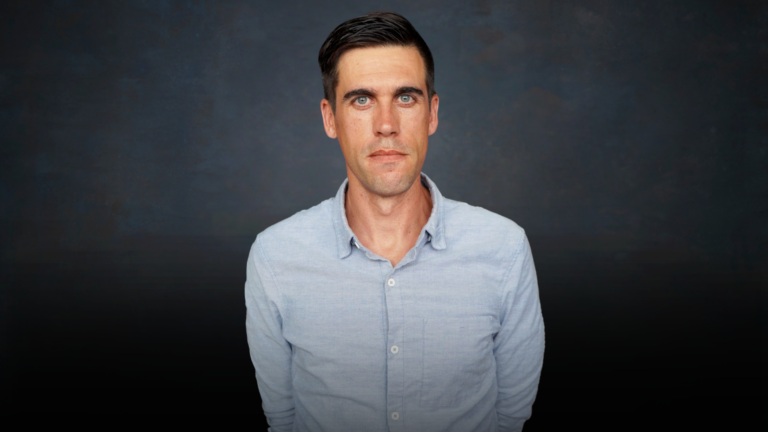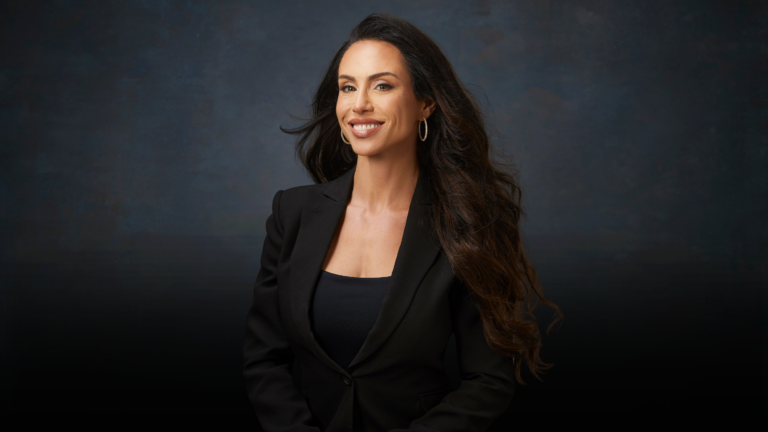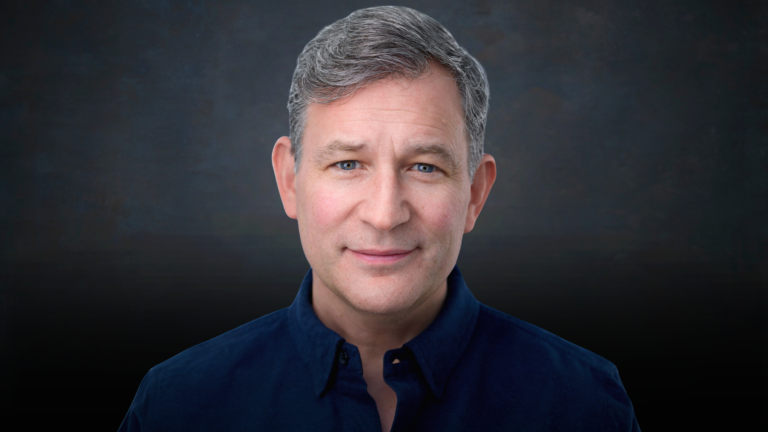This week’s conversation is with trailblazing psychologist and author of the New York Times bestseller Emotional Intelligence, Dr. Daniel Goleman.
Daniel has transformed the way the world educates children, relates to family and friends, and conducts business.
Well-known for his work in leadership and education, Daniel is also a distinguished voice in the field of meditation.
A meditator since his college days, Daniel spent two years in South Asia, first as a Harvard Predoctoral Traveling Fellow and then again on a Post-Doctoral Fellowship.
His first book, The Meditative Mind: The Varieties of Meditative Experience, was written on the basis of that research, offering an overview of various meditation paths.
Daniel’s other books include: A Force for Good: The Dalai Lama’s Vision for Our World and Altered Traits: Science Reveals How Meditation Changes Your Mind, Brain and Body.
In this conversation, we discuss his key findings, frameworks, and insights around why emotional intelligence is foundational – and how you can develop it.
“IQ, cognitive abilities are basically hardwired. They don’t really change that much through life… On the other hand, emotional intelligence is learned and learnable, and you can upgrade it at any point in life.”
In This Episode:
How he became interested in the power of the mind
I think that being compelled into meditation to manage my anxiety as an undergrad helped me see that you can train your mind, that you can take control in a sense, not in a tight sense but an easygoing sense of what’s going on inside you. And then fast forward, I became a science journalist. I got a psychology degree, and as I was working for the New York Times and covering the brain and behavior, and I saw that there was a critical mass of understanding of emotions and their role in our lives, that is what got me to write the book, Emotional Intelligence.
What is emotional intelligence?
Emotional intelligence, for those who are new to it, I mean self-awareness, knowing what you’re feeling, what you’re thinking, how it matters for what you’re doing, for your performance if you will, understanding that you can use that information to manage yourself better. Self-awareness leads to self-management, to being resilient, to bouncing back after getting upset and being able to recover, being able to keep focused on your goals despite obstacles.
Empathy as a big component of EQ
The other half of it that I think is really crucial, empathy, being able to sense what other people are feeling and to use that to have effective relationships. To be an inspiring leader, for example, you need to articulate some shared meaning or purpose of what we’re doing that resonates with people, but bullshit, really? What matters to you and what matters to them? That’s what’s motivating, that’s what’s inspiring. And to do that, you have to circle back to self-awareness, what really matters to you. So I see all of that as working together.
Three kinds of empathy
There are three kinds of empathy, and they’re actually based in different parts of the brain, different circuitry. One is cognitive empathy. I understand how you see things, how you think about the world, your mental models to speak technically, and that lets me communicate with you very effectively. The second is emotional empathy. I know what you’re feeling, because I feel it too. And there’s a different set of circuits in the brain that does that. But then there’s a third kind of empathy. It’s called empathic concern, technically. This means I care about you. It’s not just that I know how you feel and think, but I want what’s good for you, not just what’s good for me.
Caring is the foundation of compassion
There’s no compassion without caring. Caring and compassion on a spectrum together. So you can think of our attention, how we parse the world, how we attend to it in terms of a spectrum from being totally self-absorbed, “all I care about is me, mine, I,” to noticing other people, tuning into them and knowing what they think and feel, to then caring about them and then acting in a compassionate way. And I would argue, and our data shows that the leaders that people love to work for, the coaches that people love, can be tough when they need to, but they’re basically caring. You know that they have your back. You know that you’re safe with them.
An exercise for leadership
And one practice, if you will, that people who are in leadership or coaching positions can do is to start by not saying what they think the other person needs, but to ask them who do they want to be? What’s their ideal self? And then set up a program of learning and training that helps them go where they want to go. That tells the person that you see them as a person, you care about them. And by the way, I can help you get there.
1on1 conversations to show you care
There’s an important aspect of being a leader that’s often overlooked, because we’re too time pressured these days. And it’s a one on one conversation with the person – not about the job, but about the person. What do you want from life? What do you want from your career? What do you want from this job? How can I help you get there? That tells that person that you really care about the person, and it gives you valuable information so you can give them feedback or set up a program of learning, in terms of where they want to go. Not just in terms of what our organization needs from you, but also how you want to grow.
EQ is not just “getting along” with everyone
It’s not just about being nice or harmonious. I was talking to Vanessa Druskat, an expert on teams. And she said, “One of the signs of a high-performing team is that people belong, but it’s not just that they belong, they feel a lot of psychological safety.” In fact, when Google looked at its high-performing teams among engineers, psychological safety was the number one element that stood out. So she says, “You feel safe enough to say things that make other people uncomfortable. It’s not just like playing happy family, we’re all really happy here, but maybe we can bring up what’s making us unhappy and deal with it.” So, I think this is important because there’s a stereotype that emotional intelligence means just getting along. But I think it means more than that. It means you can bring your authentic self to what you’re doing.
Difference between IQ and EQ
IQ, cognitive abilities are basically hardwired. They don’t really change that much through life. The G, which sometimes is used to stand for general intelligence, has a high correlation actually with genetics so that – what we’re given is what we got. On the other hand, emotional intelligence is learned and learnable, and you can upgrade it at any point in life.
It all starts with care
There are five steps in getting better [at caring]. And the first step starts with the basic question, which is, do you really care? Because if you don’t care, if you’re not motivated, it’s going to take time and effort. Forget it, you can stop right there. But if you care, then you can get this kind of a diagnosis, or you can just ask people who know you well who will be honest with you?
How do you “practice” or get better at caring?
tuning into those love and kindness, pebble in the pond practices, because what they do, and there’s good brain science on this now, is enhance this circuitry for caring. So people who do these practices, and the practice is simple. You think of someone in your life you’re grateful for because they’ve really cared about you, and you wish them that they be safe and happy and well and so on, then you wish it for yourself and for people you naturally care about, people you love, people you know, and then you widen the circle to eventually everyone everywhere. That’s the big one.
Take care of yourself, for others
Well, I think it’s clear that you need to take care of yourself, of course. But if you stop there, I don’t think that’s enough. And you’re seeing your teammates as oppositional, but you are on a team, and I assume that how that team performs matters too. But also what about the organization as a whole? And in the sports situation, what about your industry as a whole? What about your sport as a whole? Is there a larger way you can look at this that takes you out of that narrow, it’s all about me, and has an us that you’re part of. I think that’s the important question.
All is better than one
There’s a saying in Japan, “All of us are smarter than any one of us.” And I would say that all of us are better than any one of us, no matter what the game is, business or sports.
The story behind the inspiration for his book, “Emotional Intelligence”
I started the book, Emotional Intelligence, with a story about a guy who was a bus driver, who I happened to be on his bus one day. It was a hot muggy day in August in Manhattan. He’s going up Madison Avenue. And this guy did something pretty startling for New York City. He looked me in the eye and he said, “How has your day been?” Like he cared. And then it turned out, he’s talking to everybody on the bus. “You’re looking for suits, there’s a sale here. And did you see the exhibit in this museum up here,” and on and on. People would get off the bus, he would say, “I hope you have a wonderful day,” like he meant it. That guy made people feel better. He was really an urban saint.
Purpose vs purposefulness
It turns out that people who have clarity about their sense of purpose, like this bus driver, can find ways, we call it purposefulness. If you have good purposefulness, you can find a way to make what you do express your purpose, like the bus driver. So, I’m not sure that you need to align your purpose with your organization’s, you need to find a way that your niche in the organization allows you to express your purpose.
“Good work”
Good work has three parts. One is what you’re best at. What skills do you have? What’s your tools, tool kit? The other is, what do you love doing? What engages you? And the third is, what matters to you. That’s your purpose. And what they say is align those three things and you’ll have work that you love, whatever it is that you’re doing.
Emotional Maturity
I think of it in terms of growing in the emotional intelligence domain, being more self-aware, being more in control of yourself and command of yourself, leading yourself better, really attuning to other people, and using all of that to have highly effective relationships. I’d call that emotional maturity.’



